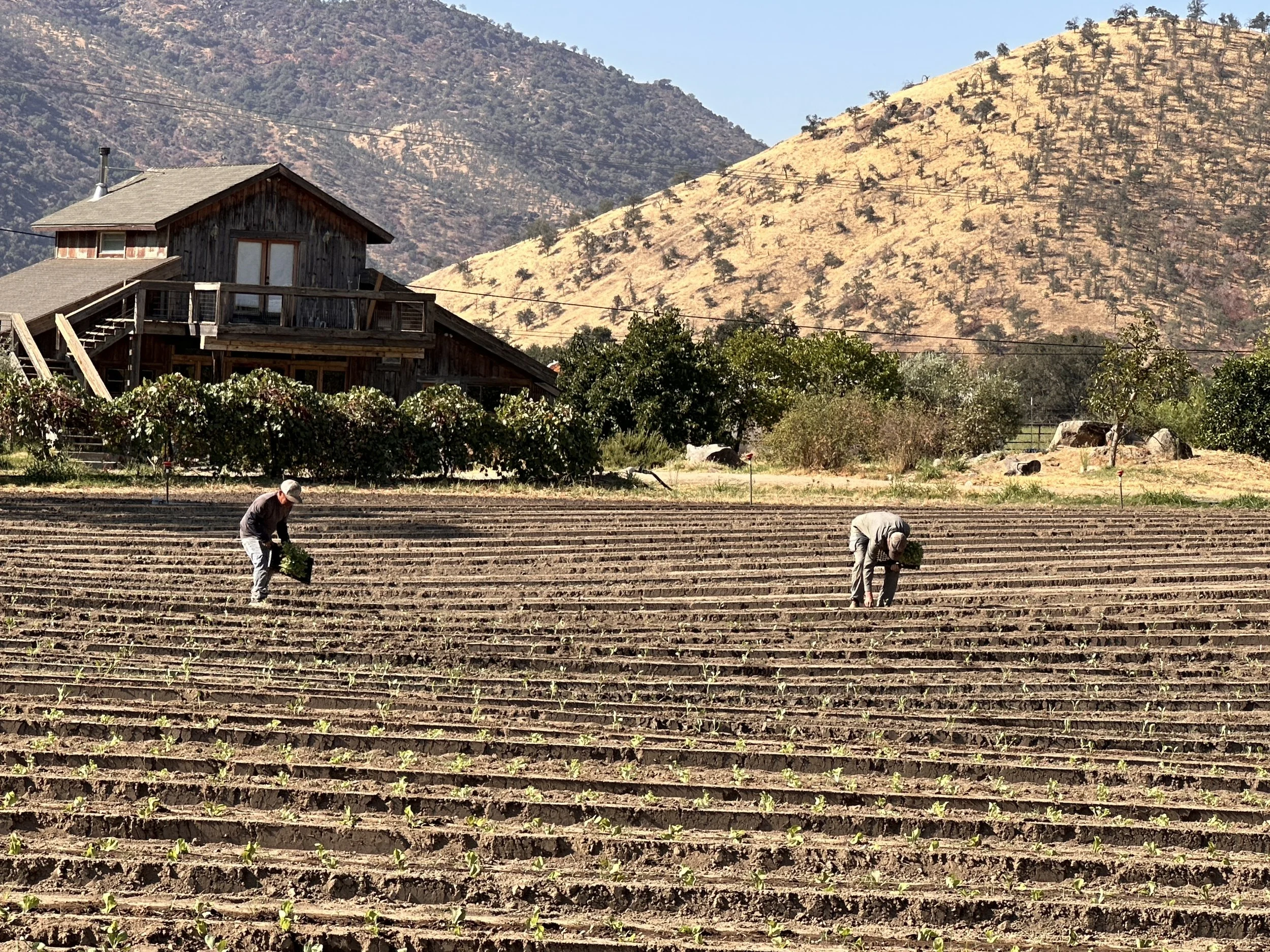A Passing of Hands: Fall Planting at Flora Bella
This summer marked a season of transition at Flora Bella. Come June, James and Dawn began gently winding down the season. With the gates left open, wild creatures slipped in—deer, bunnies, bears, and squirrels—feasting on what remained: sun-warmed arugula, sweet tomatoes, and late squash. By July, the fields were plowed under, folding the summer’s abundance back into the soil. Soon after, James and Dawn packed their things and headed east, off to Maine and the beginning of their next adventure.
Not long after their departure, the farm turned a page. We finalized the purchase, stepping fully into operating the farm. Beto, who has tended this land alongside James for decades, took a well-earned pause through July and August, readying himself for the season ahead.
By late August, it was time to begin again. James flew back from Maine for a few days, guiding Jamie on the tractor—teaching him how to bed the fields, lay irrigation, and work the transplanter. New equipment arrived too: our bedder, the waterwheel transplanter, and other tools that are already reshaping how we work the land. It felt like a passing of the torch—not only of knowledge but of tools, care, and stewardship.
On planting days, the farm was alive with both work and play. Old Willy padded faithfully alongside the tractor, keeping Jamie company as the rows took shape. Dear friends of the farm—B, Chris, and Alex—joined in, lending their hands to prepare the soil and tuck in the first crops. Evenings stretched long around the table, where B kept everyone nourished with beautiful spreads of produce, cheeses, and breads, reminding us that farming is sustained as much by community as by the land itself. Sam, Jack, and Peter spent their last week before school sun-drenched and barefoot, splashing through mud from freshly irrigated fields at sundown, discovering the joy of the farm in their own way.
We’ve planted rows of arugula, broccoli, fennel, mustard greens, radicchio, turnips, and radishes. The arugula was direct-seeded, and three days later we were greeted with the thrill of the first sprouts pushing up through the soil. Each time it feels like a small miracle. With fences repaired to keep the deer out and irrigation running to each row, the fields are alive once again with promise.
Beyond the rows of new crops, we’ve been exploring every corner of the farm, reacquainting ourselves with its abundance. Sun-ripened figs appeared in the hedgerows, buckwheat bloomed and hummed with bees, rosebuds perfumed the air, and—miraculously—murcotts still clung to their branches from last season, their flavor somehow preserved by time. We’ve been mending irrigation lines to the orchards, making sure each tree is cared for, from the citrus to the olives. Evenings are alive with the song of crickets and bullfrogs, and sudden summer thunderstorms roll across the valley, the intense heat making every splash, every breath, feel vibrant and real. These small acts of tending remind us that the farm is more than just planted fields—it’s an entire landscape of life that requires devotion.
Being back at the farm this season has been a quiet, profound joy. The scents of summer—the sun-warmed soil, the tang of ripening tomatoes, the fresh-cut greens—brought me straight back to my own childhood, running barefoot through these same fields, learning the rhythm of the land. Now I watch Sam, Jack, and Peter discover it for themselves: splashing in mud from freshly irrigated rows, chasing Willy across the fields, tasting the first sun-ripened figs. The hard work feels lighter when it is shared, and the memories intertwine—past and present folding together in the soil beneath our hands.
As we turn the page into fall, we feel the farm breathing with a new rhythm. The crops are in, the fences are strong, the irrigation is flowing, and the fields are greening again. We can’t wait to bring this new harvest to market in October and share it all with you.
July 4, 2025
James plowing the field one last time, leaving the land ready for our fall planting.






